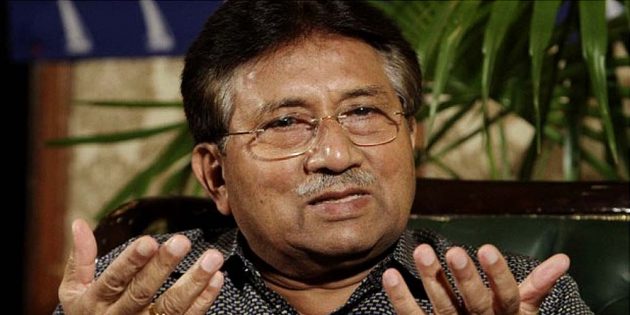Charges on Musharraf
The ex-president facing treason trial under Article 6 of the Constitution as well as Section 2 of the High Treason Act for imposing emergency in the country on November 3, 2007 that also resulted in the suspension of 61 judges of the superior judiciary, including then Chief Justice Iftikhar Mohammad Chaudhry.
Treason Case Timeline
November 29, 2007, retired general Pervez Musharraf took oath as a civilian president
He lifted the emergency, revoked the Provisional Constitutional Order (PCO)
He also restored a Constitution amended on November 15, 2007.
August 18, 2008, Pervez Musharraf resigned as president after a nine-year rule in the country.
On July 22, 2009, Supreme Court summoned him to defend his action regarding emergence
While on July 31, 2009, the apex court declared Musharraf‘s decision to impose an emergency.
The ex-president refused to respond to the court
He departed for United Kingdom after which, his companions launched a political party “All Pakistan Muslim League (APML)” and made him its chairman.
March 23, 2013, Musharraf returned Pakistan on pre-homecoming protective bail for 10 days to participate in the general elections.
April 8, 2013, SC summoned ex-military ruler in the treason case
The apex court directed the interior ministry to include his name in the Exit Control List (ECL).
On November 18, 2013, then Chief Justice of Pakistan Iftikhar Chaudhry had established special court for the trial of Musharraf.
However, on December 12, 2013, the tribunal called him for proceedings of treason case.
March 30, 2014, the special court had indicted Musharraf
But on March 18, 2016, he left for Dubai to “seek medical treatment”.
On May 11, 2016, special court declared Musharraf an absconder.
June 7, 2018, SC had allowed Musharraf to contest elections on the condition to appear before the court
But on August 29, 2018, the special court told Interpol refused to issue red warrants for ex-president’s repatriation from UAE.
October 8, 2019, special court had decided to hear the case on the daily basis.
November 19, 2019, the court concluded the case and reserved the verdict for announcement on November 28
But on November 23, 2019, Musharraf challenged special court‘s move in Lahore High Court.
Chief Justice Athar Manallah stated that there were unique, unusual and unprecedented circumstances in the case.
Moreover, the special court said that it will announce verdict of high treason case against Musharraf on December 17.




